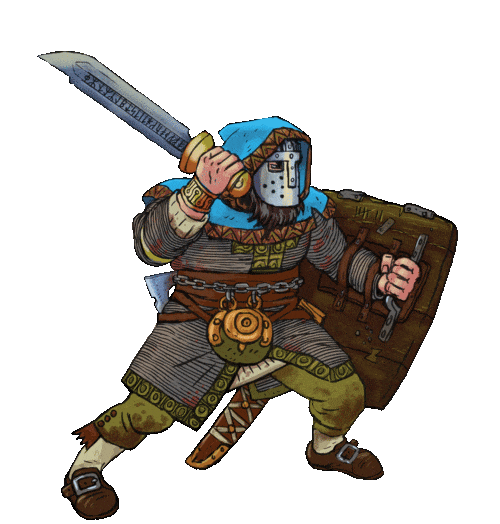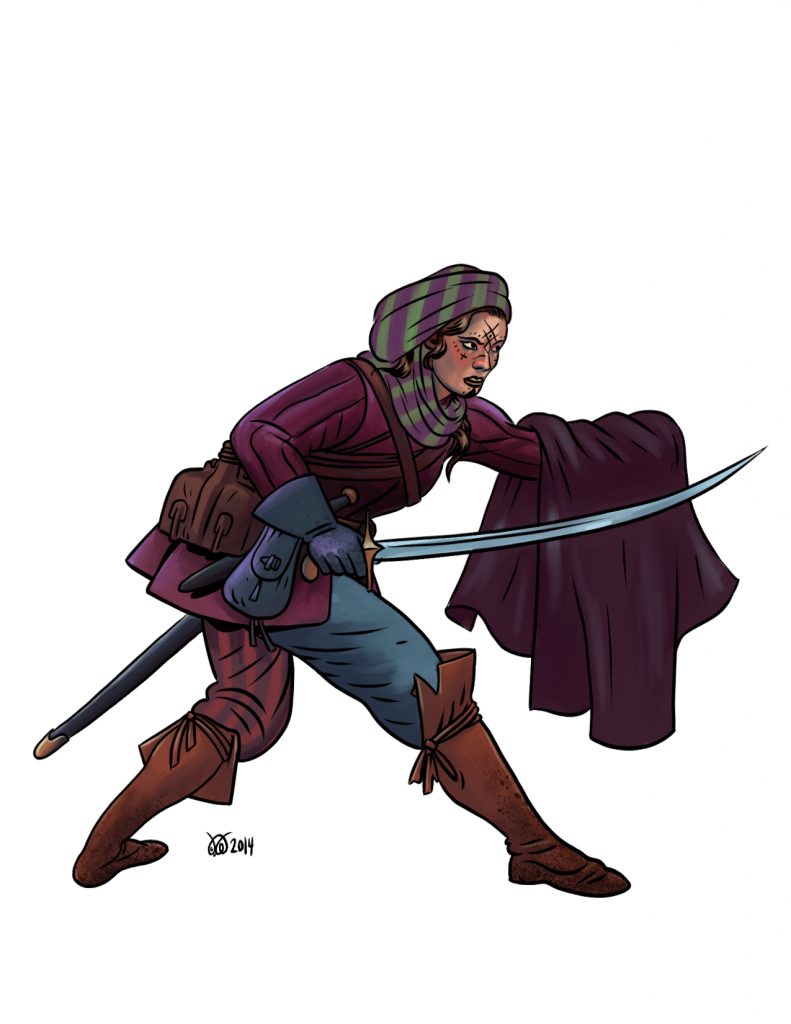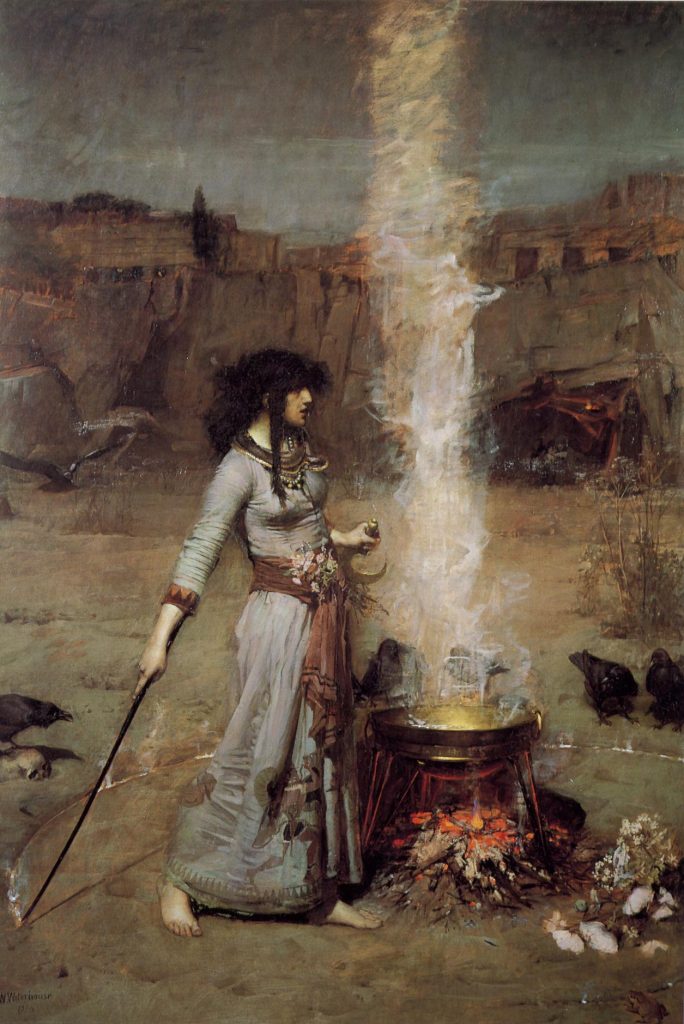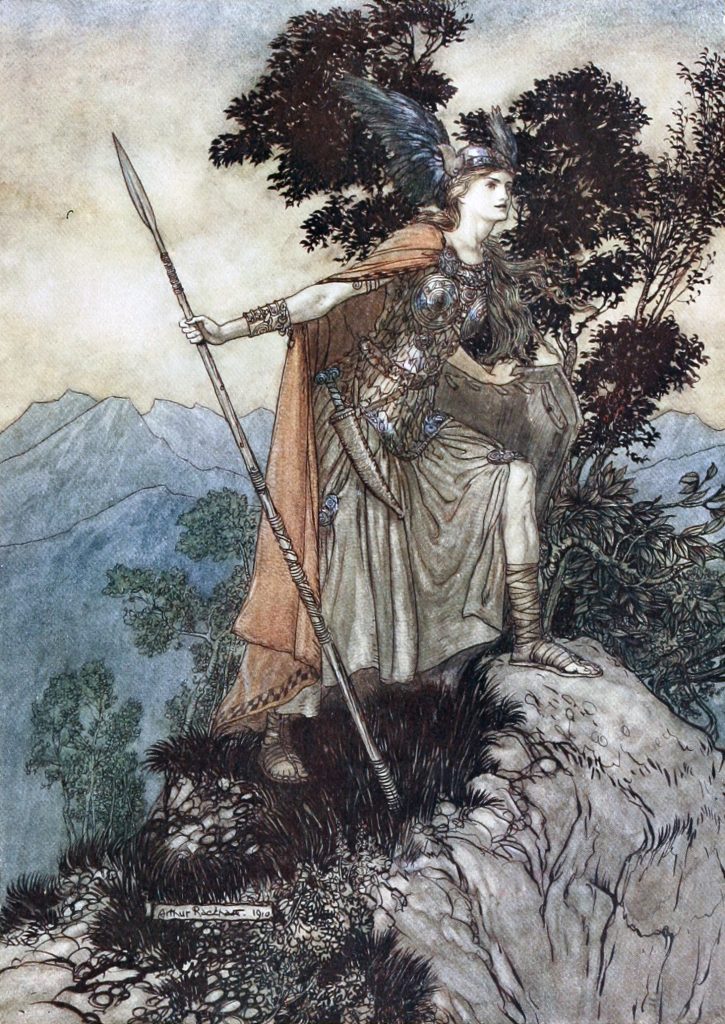
Hello friends!
I know it’s been a while since my last update. Everyone at BWHQ has been in a frenzy working on Torchbearer 2nd Edition and getting Bridge of the Damned ready for press. We’re still going at it hammer and tongs, but the writing is done. It’s all editing and proofing now.
That means I’ve got a bit more bandwidth to work on some new content. I can’t commit to weekly updates here just yet, but I do hope to post more regularly.
Today I want to take a closer look at dwarves, or dvergar, from Middarmark–specifically their Avenging Grudges nature descriptor.
Never Forgive, Never Forget
Dwarves live a long time, often in close quarters, and they are a vengeful folk. Grievances, petty and otherwise, arise frequently. Rather than allow such resentments to fester and spread to consume whole clans and holds, the dvergar have adopted a system of formalized grudges that require the aggrieved to air their complaints publicly and vow before their ancestors and the longbeards and matriarchs of their clan to set things right.
If the ancestors, longbeards and matriarchs accept the grudge, they enter it formerly into the clan’s chronicles. Thereafter, the dwarf’s actions taken in pursuit of the vow are considered legal among one’s kin. They are honor-bound to support the dwarf against dvergar of other clans should that clan seek vengeance for actions taken by the dwarf in pursuit of avenging the grudge. Vendettas pursued without formally declaring a grudge offer no such protection and bring shame to one’s kin.
Avenging Grudges
Among the dvergar, grudges are formal affairs, sacred vows to right a personal wrong or settle a personal grievance. Traditionally such a vow is made before the longbeards and matriarchs of one’s clan that it may be recorded in the chronicles, though outcasts do as they must: Grudges that are not declared before and accepted by the longbeards and matriarchs are often held suspect. Typically outcasts resort to announcing their grudges to other dwarves (preferably) or a large gathering of people (a full tavern will do in a pinch) in the hope that the grudge and their deeds in pursuit of avenging it will be acknowledged by their erstwhile clan and recorded in the chronicles despite the outcast’s lowly status.
Holding aloft a vessel of nog or other strong drink, dvergar initiate the declaration of a grudge with a recitation of one’s lineage, great deeds and past grudges successfully avenged. The dwarf then lists the grievances committed by the subject of the grudge—the longer and more exact the list of grievances, no matter how petty, the more seemly the grudge is considered by other dwarves. The declaration ends with a vow stating what the dwarf will do to avenge the grudge. Typically the vow involves killing, humiliating or ruining the target of the grudge, though forcing an apology and impressive remuneration would be considered acceptable.
Once formally announced and accepted, a dwarf is expected to pursue vengeance above all things. The dwarf’s actions in pursuit of avenging the grudge are considered legal among the dvergar. The dwarf may not declare another grudge until the grudge in question has been avenged. Likewise, if the dwarf abandons or forgives the grudge without completing the oath, they are deemed oathbreakers and cast out of their clan.
An outcast’s grudge is not considered legal in the same way unless entered into the chronicles. Nor can they be outcast again if they abandon a grudge, though doing so would still be cause for great shame.
It should be noted that the longbeards and matriarchs will never accept a grudge declared against a member of one’s own clan. Such things are not done (except in the sagas, where such dishonorable things occur frequently and bring tragedy to all concerned). Any dwarf that does so brings shame upon themselves and their kin.
Avenging Rules
To declare a grudge, test Oratory (or Avenging Grudges nature) using the following factors:
Avenging Factors
Circumstances of declaration
- Before dwarves at your Ancestral Vault (1)
- A formal gathering of your clan (2)
- A gathering of dwarves (3)
- A gathering of people (4)
+ Vow
- To kill (1)
- To ruin (reputation or financially) (2)
- To humiliate (3)
- To force an apology and remuneration (4)
If successful, regardless of whether the grudge has been formally accepted or not, replace your current goal with your vow. Until the grudge is avenged (and as long as you don’t change your goal), all tests made in pursuit of your vow are considered to be within your character’s nature. If you avenge your grudge and live to tell the tale, gain +1D or +2D to Circles in the place where you made the vow based on the enormity of the task.
Suggestions for Failure
Failure to avenge a grudge should be commensurate with the magnitude of the grudge and location in which the grudge was declared. Failing to avenge a grudge declared and accepted formally before your ancestors at your Ancestral Vault will result in being outcast and shunned. Failing to avenge a grudge drunkenly declared before a bunch of humans will get you ridiculed. The game master should choose a failure result appropriate to the situation or invent one that fits better.
- You have made a new enemy who insults you until you leave. No further effects.
- You are laughed out of this location and may not return during this town phase. No further effects.
- Suffer a factor in all tests in the town where you declared the grudge until you perform the deed you pledged to perform (pursuit of the goal is no longer considered to be within your character’s nature).
- Your shame prevents you from declaring another grudge until you perform the deed you pledged to perform (pursuit of the goal is no longer considered to be within your character’s nature). Your shame is clear to any dwarf who looks upon you and you are not welcome in any dwarven hall.








